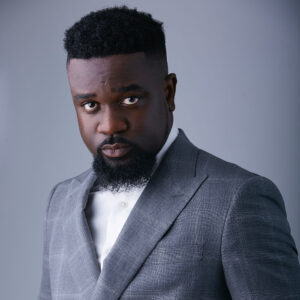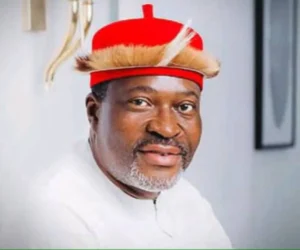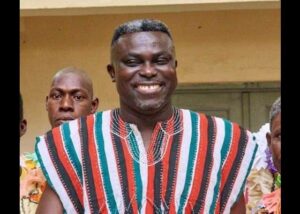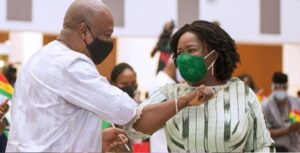Netizens Blast Prince David Osei for Calling John Mahama a Drunkard, Labeling it Below the Belt

Ghanaian actor and staunch supporter of the New Patriotic Party (NPP), Prince David Osei, has sparked significant controversy on social media following his recent comment in which he referred to former President John Dramani Mahama as a “drunkard.”
The actor made the controversial statement in response to Mahama’s victory in the 2024 presidential elections. This remark, posted on Twitter, has been met with widespread condemnation, with many criticizing Osei for his lack of decorum and respect towards the country’s political leaders. In his now-viral tweet, Prince David Osei wrote, “Even drunkard you voted for kwasia boy!! Learn sense wai Gyimi.”
The comment was perceived by many as both disrespectful and uncalled for, particularly in light of the longstanding Ghanaian tradition of maintaining civility and respect in political discourse. Critics argue that such inflammatory statements only serve to exacerbate the political polarization in the country, fueling division rather than promoting healthy debate.
Social media users were quick to voice their disapproval, with many labeling Osei’s words as “insensitive” and “unpatriotic.” Some pointed out that while political disagreements are natural, publicly insulting a former president by calling him a “drunkard” crosses a line. A Twitter user responded by saying, “We can disagree politically, but referring to a President as a drunkard is completely out of line. Public figures should do better.” Another user added, “This is below the belt. Prince David Osei should be held accountable for his words. Such comments don’t foster unity.”
The backlash has also extended to discussions about the role of public figures in shaping the tone of political conversations. Many Ghanaians believe that actors, musicians, and other public personalities, especially those with a large following, have a responsibility to uphold the values of respect and professionalism, particularly when engaging in political discourse. Comments such as Osei’s, critics argue, contribute to the growing climate of hostility and intolerance in Ghanaian politics. Public figures who are meant to be role models should aim to engage in constructive dialogue and avoid rhetoric that may inflame tensions.
The comment has also raised concerns about the role of social media in politics. With the increasing use of Twitter and other platforms for political commentary, individuals in the public eye often make statements that resonate with large audiences. However, the ease of making inflammatory comments can sometimes overshadow the need for more thoughtful and respectful communication. Social media has become a double-edged sword, where opinions can spread rapidly, but with little control over how they may impact public sentiment or deepen divisions.
Despite the backlash, Prince David Osei has yet to issue a public apology or respond to the criticisms surrounding his comment. His silence on the matter has only fueled further debate, with some calling for him to take responsibility for his words and reflect on the potential consequences of his actions. Others believe that the actor should be held accountable for his words, considering the influence he wields as a prominent figure in the entertainment industry.
This incident serves as a reminder of the importance of maintaining respect and civility in political dialogue, especially in a democracy like Ghana’s, where open debate and diverse opinions are essential. While disagreements over political issues are inevitable, public figures must strive to model the behavior they hope to see in others. The use of derogatory language, particularly in reference to elected leaders, only undermines the integrity of the political process and further divides an already polarized society.
As the political landscape in Ghana continues to evolve, it is crucial for citizens, especially those in the public eye, to engage in more constructive conversations and avoid remarks that can harm national unity. The call for more responsible behavior in public discourse is not just about individual accountability but also about fostering an environment where respectful and meaningful political engagement can thrive.








